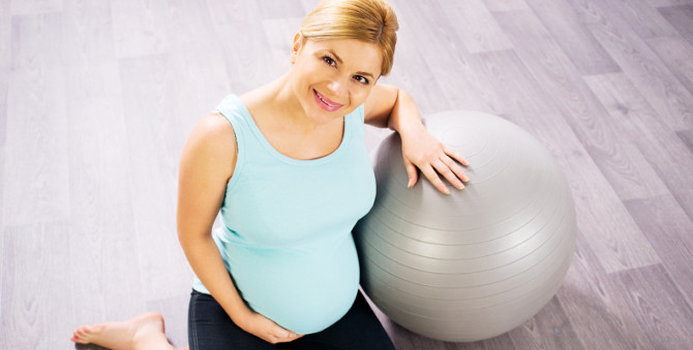When it comes to exercise programs, the Pilates abs workout is well known for its ability to strengthen and tone the core muscles of the body. For this reason, many pregnant women may desire to begin or continue a Pilates program throughout their pregnancy. Better posture along with fewer aches and pains are just two benefits of Pilates workouts that pregnant women can surely afford to gain. While some of the exercises performed in a Pilates class are safe while pregnant, many of them will not be. It is important to understand the effects of pregnancy on the abdominal muscles in order to safely proceed.
For the duration of your pregnancy, there is a hormone called relaxin that will soften connective tissue, thereby helping the muscles and joints become more relaxed so that the body can accommodate the baby as he or she grows. This allows the abdominal muscles to extend to more than 50 percent of their natural length during pregnancy.
For most women, around the middle of the second trimester, the rectus abdominis muscles will begin to separate down the middle of the body. This separation is known as diastasis. While this is a natural occurrence, it causes a decrease in lower back support, and often an increase in lower back pain and discomfort. Many abdominal exercises can increase the diastasis by causing the rectus abdominis to contract too strongly. Muscle integrity can then be lost which, will trigger the two halves of the muscle to contract individually, resulting in a broadening of the area between the rectus halves. With this in mind, most of the Pilates abdominal exercises are deemed inappropriate.
Safe Abdominal ExercisesA better choice when doing a Pilates abs workout is training the internal obliques and the transverse abdominis. This will be more effective and much safer than working the rectus abdominis. Keeping the transverse abdominis, or TVA, in shape will not only provide better support to the uterus, but it will also assist in reducing separation of the rectus and prevent excessive diastasis. Utilizing a Pilates fitness ball will help to tone the TVA, improve your balance and can increase upper body strength in general. Strong abdominal muscles can help support the uterus and relieve back pain and pelvic pressure. Delivery is easier and your body will recover much quicker if the abs are in good shape at the time of birth. You must be sure, however, that any steps taken to strengthen those muscles are done safely.
Choosing WiselyThe most important step you can take in making sure that you will not harm your body during abdominal workouts is to utilize the instruction of a certified and trained teacher who has educated themselves about the pregnant woman's body. The instructor should understand the musculoskeletal system and how it is affected during pregnancy. A Pilates instructor who works with pregnant women must be knowledgeable in the modification of each exercise, and know which exercises are to be avoided altogether. Be sure to get the okay from your OB-GYN before beginning any exercise program during pregnancy.



